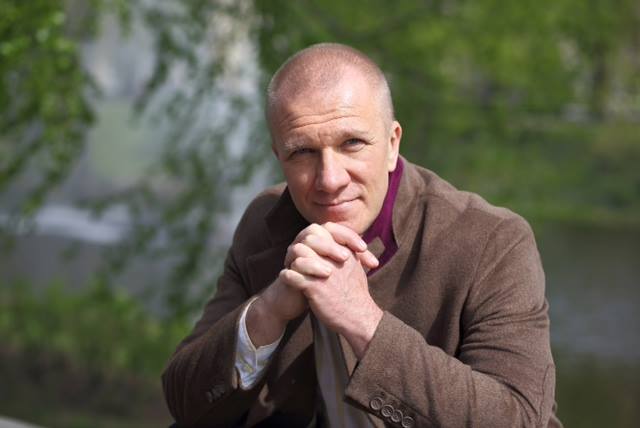Все, что нужно знать о бонусах казино Гизбо
Современные платформы для азартных развлечений предлагают своим пользователям множество привлекательных предложений, направленных на увеличение игрового опыта и предоставление дополнительных возможностей. Эти инициативы, как правило, включают в себя различные привилегии, которые помогают сделать процесс более захватывающим и выгодным.
Разнообразие таких предложений может варьироваться от дополнительных средств на счет до эксклюзивных предложений и подарков, способных значительно увеличить шансы на успех. Эффективность этих стимулов во многом зависит от условий их предоставления и уровня удовлетворенности пользователей.
Интересующиеся могут найти массу вариантов, как улучшить свои результаты и получить больше удовольствия от игры. Зачастую такие привилегии становятся ключевым фактором при выборе между различными игровыми платформами, предоставляя возможность наилучшего использования своего времени и средств.
Бонусы в казино Гизбо: Обзор и Плюсы
- Приветственный пакет: Вначале пользователи могут рассчитывать на целый набор предложений, направленных на расширение их возможностей. Эти предложения часто включают в себя дополнительные средства для игры и фриспины, которые позволяют испытать различные развлечения без значительных финансовых вложений.
- Регулярные акции: Платформа регулярно организует мероприятия и акции, которые могут включать розыгрыши, турниры и специальные задания. Эти мероприятия способствуют созданию соревновательной атмосферы и предлагают возможность заработать дополнительные призы и преимущества.
- Программы лояльности: Для постоянных участников предусмотрены специальные схемы, которые позволяют накапливать баллы и получать эксклюзивные предложения. Эти программы часто включают в себя уровни, где с ростом уровня участники могут рассчитывать на ещё более выгодные условия и привилегии.
- Сезонные предложения: В течение года платформа может предлагать уникальные предложения, связанные с праздниками или определенными событиями. Эти предложения часто имеют особые условия и могут включать в себя ограниченные по времени акции.
Таким образом, разнообразие предложений и привилегий на данной платформе может значительно обогатить опыт участников, делая каждую игровую сессию более увлекательной и выгодной.
Разнообразие бонусных предложений казино
Игровые заведения предлагают широкий спектр привлекательных предложений для своих клиентов, каждый из которых имеет свои особенности и преимущества. Эти предложения направлены на то, чтобы сделать игровой процесс более увлекательным и прибыльным для участников. Важно понимать, что эти стимулы могут варьироваться от простых до более сложных, каждый из которых рассчитан на разные типы игроков и их предпочтения.
Вот некоторые из самых популярных видов таких предложений:
- Добро пожаловать: Включает в себя стартовые пакеты, которые могут включать дополнительные кредиты или бесплатные вращения на определенных играх.
- Периодические акции: Регулярные мероприятия, предлагающие дополнительные вознаграждения или специальные условия для игры в определенные дни.
- Кэшбэк: Возврат части потерь игрокам, что помогает минимизировать убытки и продолжать игру.
- Программы лояльности: Накопительные системы, которые вознаграждают постоянных клиентов за активное участие и игру.
- Турниры: Соревнования, где игроки могут проявить свои навыки и получить дополнительные призы.
Каждое из этих предложений имеет свои особенности и может значительно улучшить опыт участников, предоставляя им больше возможностей для выигрыша и дополнительного удовольствия от игры.
Как получить бонусы в Гизбо
Первый шаг включает в себя регистрацию и создание личного аккаунта. После завершения этого процесса, новички часто имеют возможность получить специальные предложения. Это могут быть разнообразные активные предложения, которые могут существенно повысить шансы на успех.
Второй шаг – это выполнение необходимых требований, которые могут включать депозиты или участие в определённых акциях. Часто нужно выполнить ряд условий, чтобы получить доступ к эксклюзивным предложениями. Это могут быть как разовые предложения, так и регулярные акции, которые действуют на протяжении всего времени.
Третий шаг связан с регулярным участием в акциях и следованием обновлениям. Клубы часто обновляют свои предложения, и важно быть в курсе новых акций, чтобы не упустить возможности воспользоваться выгодными предложениями.
Следуя этим рекомендациям, вы сможете эффективно использовать все преимущества, предлагаемые клубом, и значительно увеличить свои шансы на успех и удовольствие от игры.
Преимущества и Условия использования бонусов
Получение дополнительных преимуществ при участии в азартных играх приносит игрокам не только удовольствие, но и значительные выгоды. Такие привилегии могут существенно расширить возможности и улучшить игровой процесс. Однако важно понимать, что каждое предложение сопровождается определенными условиями, которые необходимо соблюдать для получения максимальной выгоды.
Преимущества включают в себя расширение игрового баланса, что позволяет дольше наслаждаться играми и увеличивает шансы на выигрыш. Эти предложения часто включают бесплатные вращения, дополнительные средства или другие стимулы, которые помогают игрокам получить больше от своих вложений.
С другой стороны, условия использования таких предложений могут включать требования по ставкам, минимальные депозиты или ограничения на вывод средств. Важно внимательно изучить все правила, чтобы избежать недоразумений и обеспечить себе комфортное участие.








